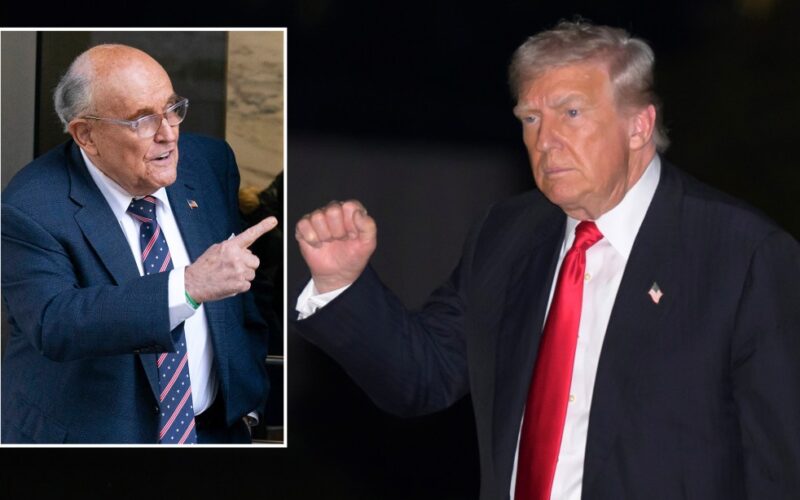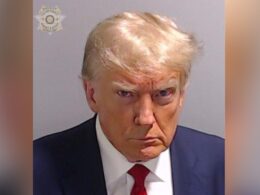President Trump has issued federal pardons to Rudy Giuliani, Mark Meadows and a long list of allies who sought to overturn his loss of the 2020 election and the Jan. 6 attack on the Capitol.
The late-night announcement clears in advance virtually all the prominent engineers of the so-called Stop the Steal plot to keep Trump in power after he lost to former President Biden, even though none of them has yet been charged with federal crimes.
“These great Americans were persecuted and put through hell by the Biden Administration for challenging an election, which is the cornerstone of democracy,” Karoline Leavitt, the White House press secretary, said Monday.
Trump’s “full, complete, and unconditional” pardon, also clears Sidney Powell, an attorney who promoted baseless conspiracy theories about a stolen election; John Eastman, another lawyer who pushed a plan to keep Trump in power; and Jeffrey Clark, a former mid-level Justice Department official who sought to push his bosses to adopt key tenets of Trump’s plot.
The stay-out-of-jail cards were also handed out to dozens of Republican officials who signed up to be fake pro-Trump electors in their states.
The proclamation, posted online late Sunday, explicitly says the pardon does not apply to Trump himself, which would have been a controversial and legally debatable act.
While none of the Trump allies named has been charged in federal cases over the 2020 election, most faced various state prosecutions, many of which are in limbo and are likely doomed for various tangled legal and political reasons.
But even if it’s mostly symbolic, the sweeping move underscores Trump’s unending quest to protect his allies from any criminal accountability for almost any alleged transgressions.
It also shows Trump’s determination to rewrite the history of the 2020 election, which he still falsely claims was stolen from him, and the Jan. 6 attack, which was the most significant violent assault on the Capitol in more than 200 years.
He already pardoned hundreds of his supporters who were charged in the Jan. 6 riot at the U.S. Capitol, including those convicted by juries of attacking law enforcement and far right-wing white nationalists who planned the violence.
The proclamation claimed prosecuting those accused of aiding Trump’s efforts to cling to power amounted to “a grave national injustice perpetrated on the American people” and said the pardons were designed to continue “the process of national reconciliation.”
Trump himself was indicted on felony charges accusing him of working overturn his 2020 election defeat. But special counsel Jack Smith pulled the plug on the case after Trump won reelection last November because of the Justice Department policy against prosecuting sitting presidents.
Giuliani — who was Trump’s personal lawyer for some time — Powell, Eastman and Clark were unindicted co-conspirators in Smith’s case against Trump but were never charged with federal crimes themselves. Meadows was Trump’s White House chief of staff during the 2020 election and the Jan. 6 attack.
AP
Rudy Giuliani and Mark Meadows are seen in 2023 booking photos after being charged by prosecutors in Georgia over attempts to overturn the 2020 election results. (AP)
Giuliani, Meadows and others named in the proclamation had been charged by prosecutors in Georgia, Arizona, Michigan, Nevada and Wisconsin over the 2020 election, but the cases have mostly hit dead ends or are in legal limbo for a variety of reasons.
Giuliani, the former New York City mayor, was one of the most vocal supporters of Trump’s unsubstantiated claims of large-scale voter fraud after the 2020 election.
The onetime hero of the Sept. 11 attacks has since been disbarred in Washington, D.C., and New York and lost a $148 million defamation case brought by two former Georgia election workers whose lives were upended by conspiracy theories he unapologetically spewed. He settled that case in a deal that allowed him to keep his plush Manhattan co-op and some treasured assets.








